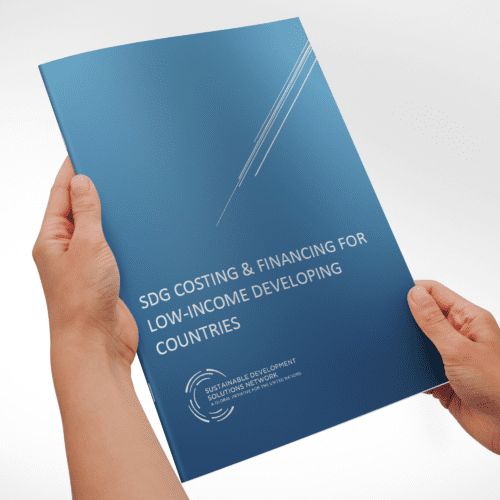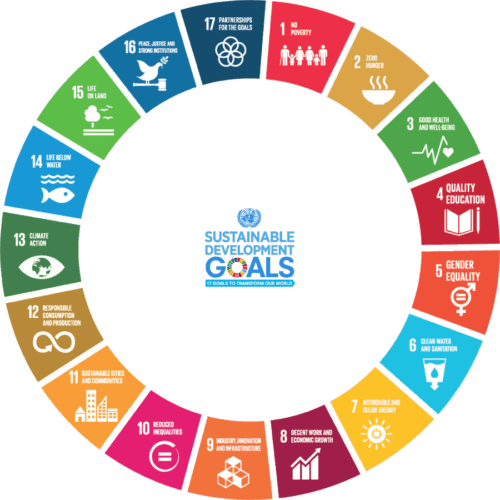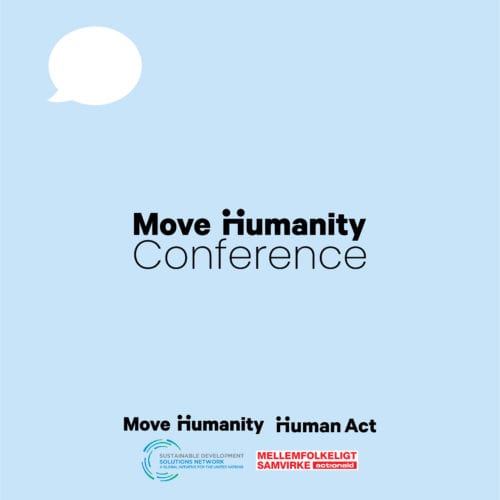Written by Jeffrey Sachs for Move Humanity.
The capitalist system produces wealth without justice. A century ago, the Scandinavian societies showed how to combine wealth and justice at the national level through the “middle way” of Social Democracy. Today, the world has agreed on Sustainable Development as the way to combine wealth, justice, and environmental survival. Meeting development aid obligations, taxing mega-wealth, and closing the world’s tax havens are now urgently needed to achieve sustainable development.
I often remark that the SDGs – Sustainable Development Goals – can also be called the Social Democratic Goals. After all, the SDGs call for societies that are not only rich but also equitable. SDG 10 calls for a reduction of inequalities within and among countries. Yet the SDGs add two features: environmental survival and the global scale.
When social democracy was born in Scandinavia early in the 20 th century, the environmental challenges were not yet seen as urgent (though Swedish Nobel chemist Svante Arrhenius already wrote about human-made global warming in 1896). The great context in the early 20 th century was the distribution of income between labor and capital. Social democracy found the way to combine private ownership with a fair distribution of income. The solutions involved widespread unionization, a national-scale formula for sharing productivity increases through economy-wide wage bargains, a pledge of social peace, and worker participation in enterprise decision making through collective bargaining and other means.
After World War II, the social welfare state was expanded as a critical tool of social democracy. The Scandinavian economies raised total tax collections above 40 percent of GDP in order to ensure universal access to quality healthcare, education, childcare, infrastructure, pensions, disability, job training, and other economic rights. The remarkable results were high levels of prosperity, social inclusion, gender equality, and skills in the workforce. Even if the results are not perfect, it’s no accident that the social democracies of Northern Europe score at or near the top of the world’s charts on happiness, life expectancy, equality of income, and gender parity. Globalization, however, has made matters more difficult for social democracy in two ways.
First, the world economy, as constructed institutionally during the past century by Anglo-American elites, has entailed a system of tax havens, financial secrecy, and a race to the bottom of capital and wealth taxation. The global system is designed and operated by and for the rich, especially in the US, where the cabinet and Congress are stuffed with billionaires, lobbyists, and politicians at the beck and call of the corporate class.
Second, despite ample warnings during the 47 years since the 1972 UN Conference on the Human Environment in Stockholm, and 27 years since the 1992 UN Conference on Environment and Development (also known as the “Rio Earth Summit”), the world economy has been run in the interests of Big Coal, Big Oil, Big Food, and Big Mining, leading to a three-part environmental crisis: human-made climate change, the destruction of biodiversity, and pervasive chemical pollution. This period has relentlessly been marked by the dominance of special interests over the common good.
Sustainable Development can be understood as social democracy at the global scale, addressed to overcoming the abuses of globalization and the global environmental crisis. A worried world signed on to sustainable development in Agenda 2030 and the 17 Sustainable Development Goals. Yet many major governments – especially that of the United States – pay lip service at best to sustainable development while in fact turning the levers of power to the billionaires. Donald Trump exemplifies the collapse of ethics in US politics. He makes US politics into a game of naked power for powerful special interests and his personal wealth.
The SDGs call on the world to meet the basic standards of economic justice: the end of extreme poverty (SDG 1), the end of hunger (SDG 2), the universal access to healthcare (SDG 3), the universal access to education through secondary level (SDG 4), and others. These goals are a restatement of core economic rights established in the 1948 Universal Declaration of Human Rights, and the various covenants and treaties on economic, social, and cultural rights since then. Yet 71 years later, these basic rights are still not realized for billions of people.
The SDGs therefore represent a long overdue claim of justice. Martin Luther King Jr. declared in his “I Have a Dream” speech that the US had written a promissory note to the descendants of American slaves, that all men would be guaranteed their inalienable rights to life, liberty, and the pursuit of happiness, but had failed to honor the obligation. We can paraphrase Dr. King’s remarkable words regarding the promises of the Universal Declaration of Human Rights, as now embodied in the SDGs:
- It is obvious today that the world community has defaulted on this promissory note insofar as her poorest inhabitants are concerned. Instead of honoring this sacred obligation, the world community has given the poorest people a bad check, a check which has come back marked insufficient funds.
- But we refuse to believe that the bank of justice is bankrupt. We refuse to believe that there are insufficient funds in the great vaults of opportunity in this world. And so we’ve come to cash this check, a check that will give us upon demand the riches of freedom and the security of justice.
Recent studies by the IMF and the UN Sustainable Development Solutions Network have shown that the 59 low-income developing countries (LIDCs), with around 1.5 billion people, cannot ensure the SDGs for their citizens without increased transfers from the richest countries. The financing gap is on the order of $300-400 billion per year, a very modest sum in view of annual world income that is now around $100 billion.
The rich countries need to take three steps to honor their 71-year-old commitment to basic economic rights, as embodied today in the 17 Sustainable Development Goals.
First, the rich countries should quickly each raise their official development aid to 0.7 percent of GDP, and rich countries that refuse, such as the United States, should be identified as in violation of the basic norms of global cooperation. The US aid shortfall alone, relative to 0.7, comes to around $100 billion per year.
Second, all countries should raise a wealth tax on billionaires of at least 1% of net worth, directing the proceeds towards the SDGs. Since the 2,153 billionaires have a combined net worth of around $8.7 trillion, this wealth tax will collect at least $85 billion per year.
Third, the rich countries should close down the tax havens under their control, including in the Caribbean, the Channel islands, and elsewhere, and take immediate steps to reverse the race to the bottom in corporate and wealth taxation.
The poor are dying by the millions while the richest of the rich garner unimaginable wealth. A half century ago, Dr. King spoke of the “fierce urgency of now.” The time for sustainable development is truly now.


